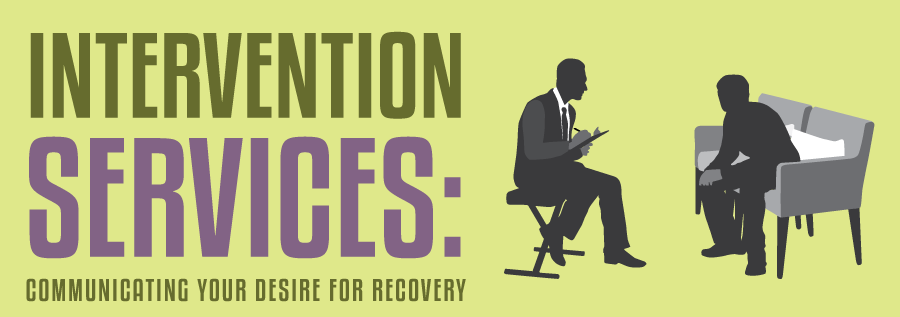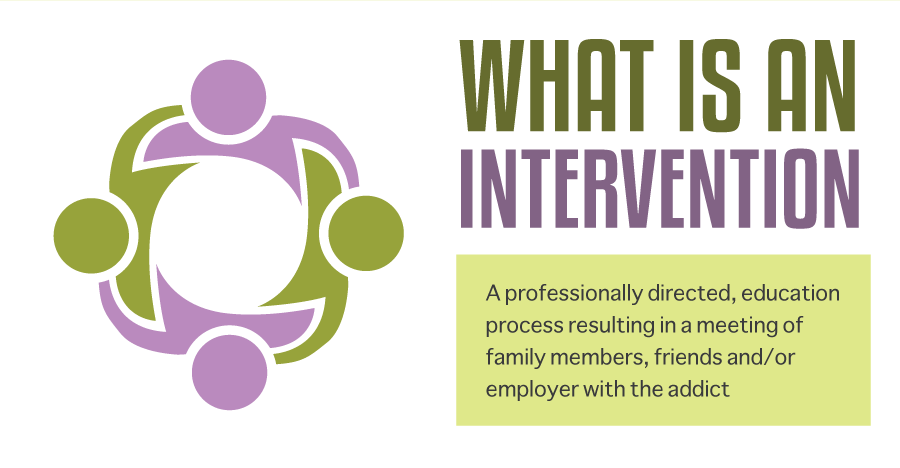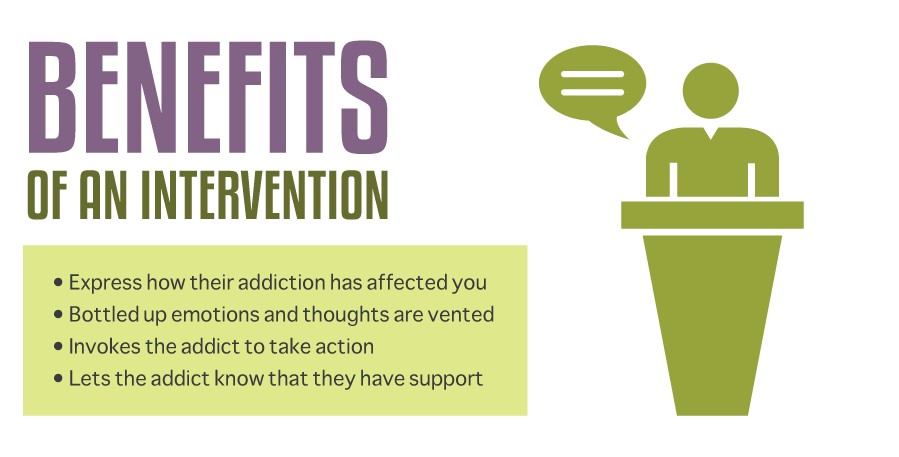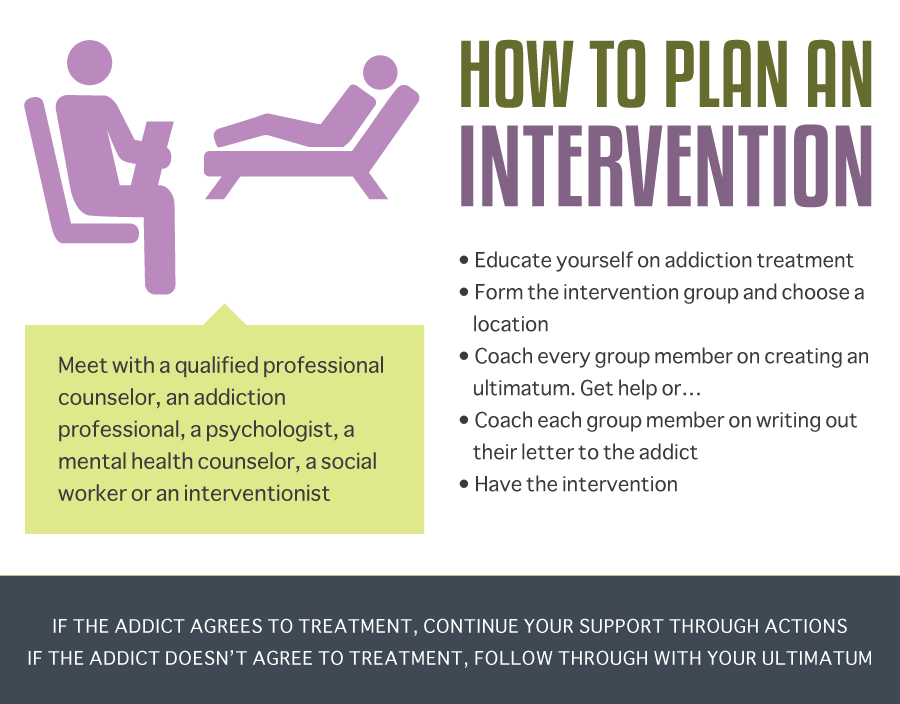Location
Our Washington Location
Our inpatient facility is located in Washington, and will serve Washington state. It will provide a safe & therapeutic environment for both our staff and patients.
- Edmonds
7416 212th St SW,
Edmonds, WA 98026

When you have a loved one who is in need of drug rehab or alcohol rehab, it breaks your heart. You can see their need, and you watch them suffering through the addiction, but yet, they seem to be in denial that there is even a problem. If they do admit that there's a problem, it can be nearly impossible to get them to agree to get help, in many cases.
Denial is so common in addiction. Whether you've personally witnessed your loved one's battle, or he or she has been trying to hide it from you, you want to be able to help in some way. It might encourage you to know that many people are much more willing to consider going to drug or alcohol rehab after having an intervention
Fortunately, we provide addiction intervention services to families who are in need of them. Let's talk about what that process includes. This will help you decide whether or not this approach is one you should consider for your loved one. Once the intervention takes place, addiction treatment programs in Washington are the next step.

An intervention is a meeting involving an addicted individual, their closest friends and family, and an interventionist. The purpose of the meeting is to communicate a desire for the addicted individual to get help. It is set up as a surprise; otherwise, addicted individuals most likely wouldn’t attend. The meeting isn’t always welcomed or well accepted by them, but it’s usually quite effective.
During the beginning of the intervention, the person is asked to take their seat and just listen. Their friends and family take turns talking about how they feel about the addict’s substance abuse problems. It’s possible that the individual may have been hiding their addiction and might not suspect that anyone even knows about it. This can make the meeting fairly shocking.
Family members and friends each have a chance to discuss how they have noticed their loved one's addiction affecting their life. It's a very emotional time for everyone in the room. The experience of an intervention is generally a really powerful one.
Friends may begin the intervention by talking about how much fun they used to have together. They may discuss how they have noticed addiction changing the person little by little, over time. The loved one's children might talk about school plays that have been missed in the past. Parents may express their feelings of pain over missing time with their child.
Quite often, interventions will also include possible consequences if the person refuses to get help. It's important to note that there is a risk of building up some level of anger in the addicted individual. When relationships are threatened to be cut off, or sources of money are threatened, it's normal to expect a negative response. However, the emotional experience and the consequences are often enough to communicate a real need for alcohol treatment or drug treatment.
Before you go forward with the intervention, you need to know if your loved one is actually an addict. Some families are absolutely certain because they know the signs to look for. Some of the more common signs of addiction include:
Maybe you’re not noticing all of the signs on this list, and that has made you feel uncertain. If that’s the case, you may want to consider taking our Family Member Addiction Quiz. This quiz may give you a little more insight into your loved one’s relationship with drugs or alcohol.
Some families find it more helpful to talk with a professional about their loved one’s substance abuse problems. If you would like to access that service, you can do so through a free phone assessment. This will allow you to explain the situation to a professional and get their opinion on what how you should proceed.
An intervention isn't always necessary before beginning alcohol treatment or drug treatment. However, it can be helpful to know that you have that option. This is especially true if you have been trying to help your loved one see that they have a problem for a long time.

Your interventionist will be a substance abuse counselor with special training in this particular field. They will have a very significant role before, during and after the meeting.
An intervention specialist has learned the best ways to confront people who are suffering from alcoholism and drug addiction. Their goal will be to educate you and the other participants, as well as to facilitate the meeting..
Once you’ve contacted the facility to set up the intervention, your first step will be to meet with the interventionist. They’ll want to know everything about your loved one. You will want to make sure everyone who will be involved is at this meeting. The specialist will listen to your stories and take notes.
Once they feel they have all the information they need, they’ll provide you with coaching. Usually, you’ll each be asked to write an intervention letter to the addict. The interventionist will teach you how to do this. They’ll tell you what information should be included, and how the letter should be constructed.
One of the areas your interventionist will be trained in is in identifying enabling behaviors. You or others may be unintentionally enabling the addiction to continue. If so, the specialist will point those behaviors out to you. They will also give you instructions on how to stop, and how to communicate your intentions to the addict.
On the day of the meeting, the interventionist may want to meet with all of you one more time. They may want to hear your letters so they can make any last minute suggestions or changes. The specialist will want to make sure you’re ready and answer any questions you might have.
You or another friend or family member will be responsible for bringing the addict to the meeting location. The interventionist will tell your loved one who they are, and what the purpose of the meeting is when they arrive.
It’s the interventionist’s job to guide the meeting from that point forward. They will let you all know when it’s time to read the next letter. They’ll make sure the addict simply listens to what is being said without responding at first. When it’s time, they’ll give them an opportunity to talk.
After everyone has had a chance to share, the interventionist will ask the addict to agree to get help. Most of the time, the emotions of the meeting will move them to say yes.
Once the intervention is over, if your loved one has agreed to treatment, the interventionist will facilitate that. They usually have already made arrangements with you for drug or alcohol rehab. This means that bags will be packed and ready to go. Transportation will be available as well.
If your loved one has left the meeting, the interventionist may follow them. It’s their job to be persuasive and to position themselves as a source of hope for recovery. They’ll do their very best to try to get the addict to agree to go to rehab.
You may not have the opportunity to talk with the interventionist again after the meeting is over. Every specialist has their own way of going about this process. They’ll let you know what to expect.

An intervention is not something that can be arranged in just a few days. As a matter of fact, many families plan them for weeks before they actually occur. It's important to choose the participants carefully, so that you can be certain that all the right people will be present. Remember, you're not sure how your loved one will respond, so it's vital to choose the right people to communicate their desires for addiction treatment.

Many families choose the participants with the least emotionally stirring reasons for treatment to speak first. They will then end with those who have suffered the most effects from the addiction.
You may be planning to present some consequences for your loved one if they don’t choose to go to alcohol rehab or drug rehab. If that’s the case, you will need to be prepared to stand behind your words. Empty threats will only reinforce the fact that you're not serious about the need for treatment at all. Tough love is hard, but it's often effective when you want someone to seek help for substance abuse.
Planning an intervention can be extremely time-consuming because there is so much preparation involved. Even though you may be working with an interventionist, there is a lot for you to do ahead of time. To help, we’ve come up with some tips that can make your meeting very successful.
The people you invite to the intervention will be critical to its success. It’s very important to think long and hard about who should be there. Again, regardless of who it is, you want to be sure that they’re committed to seeing the entire process through.
Here are some examples of the types of people you may want to invite:
It’s important not to have too many people in attendance. That could make the process too long and too frustrating. Many interventionists recommend more than two, but no more than six.
Once the intervention is over, the addicted individual will be given the opportunity to get help. At that point, they’ll be put on the spot and asked to make an immediate decision. The good news is that many people do decide to get help.
In the event that they don’t decide to get help, you’ll receive instructions from the interventionist. You may be asked to make some decisions that will be quite difficult for you. However, it’s important for you to be strong and show the tough love that the addict really needs.
A&E has a popular television series called “Intervention,” and they list some promising statistics. According to Business Insider, they tell us that:
This should give you hope for the success of this process with your addicted loved one. It can work really well as long as you go about it the right way. It’s important to be prepared, and it helps to work with a professional intervention specialist who can guide you.
Unfortunately, there are times when having an intervention doesn’t work. It’s completely up to the addict to agree to get help. If they refuse, it can be disheartening and disappointing.
Still, it’s very important for you to not give up hope. Many times, the refusal to go to addiction treatment is really just a part of the recovery process. It can take a long time before people realize the extent of the damage their substance abuse is causing. You may not have to wait until they hit rock bottom, but you may need to be patient.
It’s likely that this is the first time you’ve ever thought about working with an interventionist. Because of that, you probably have a lot of questions. We’ve taken the liberty of providing you with some of our most frequently asked questions, and their answers.
You may worried that there is no possible way for you to be persuasive enough with your loved one. It might be tempting for you to simply wait until they come to the conclusion to go to rehab on their own. You absolutely shouldn’t wait.
There is nothing you can do to change your addicted loved one. However, it is within your power to change the situation your family is in right now. This is definitely something that you need to consider.
Having an intervention can completely change your entire family dynamic. When they’re done correctly, they give you back the control you lost because of the addiction.
Sometimes families will use this as an excuse not to have the meeting in the first place. However, you need to think about the other side of the situation. The real question is – what is your alternative? Doing nothing is only going to allow the addiction to get worse as time goes on.
Your family member may very well decide not to go forward with treatment. However, the intervention may be the very first step in making them see that it’s needed. Even if they don’t get help right away, you have planted a seed that will continue to grow.
It’s no secret that confronting an addict is very uncomfortable. Unfortunately, many families would rather maintain the status quo than put themselves in a difficult situation.
It’s not enough for you to just hope and pray that things will get better. It’s your job to step in, and while it might be difficult, it will be so worth the outcome.
An intervention can work for anyone with any type of addiction. It doesn’t matter if you’re an alcoholic or a drug addict. In fact, there are interventionists who conduct meetings for people with gambling addictions or sex addictions.
Any type of addiction robs an individual of who they really are. It’s also robbing you of your loved one. It’s important to know that having an intervention can provide you with a way to get help for any type of addict.
Addicts will often hurt their families unintentionally because the addiction has the control. You may be suffering because of what your loved one is putting you through. However, it’s important to recognize the truth – you could be allowing the hurt to happen.
Most addicts aren’t able to get drunk or high on their own resources. They often aren’t able to hold down a job. Their families are the ones who are providing money for drugs or alcohol. They’re also making it easy for the addicted individual to use.
The hurt will continue until the family decides that enough is enough. This means using tough love to set boundaries and stop the enabling behaviors.
Even though you technically can do your own intervention, it probably won’t be effective. Interventionist have to spend years receiving training in order to do them properly. They know the right ways to prepare the family, and they know how to guide the meeting.
It’s best not to take a situation like this one into your own hands. Get the help of a professional to be sure everything is done properly.
Many of them work for alcohol and drug treatment programs. This is a great benefit to you because it makes getting them into rehab so much easier. Your interventionist will be a great resource for you during this difficult transition.
Your interventionist will be able to help you talk with the right people to take care of insurance and payments. This is one of the best parts of working with a professional. They will take care of a lot of the details for you, ensuring that nothing is missed.
Many addicts will immediately become defensive when they realize why everyone is gathered together. They may dig in their heels and refuse to listen to what their family is saying to them. Others may be very moved that so many people got together because they care about them.
Your loved one is likely to respond in a multitude of different ways. Check out this video from a recovered addict to gain some more insight.
There is no possible way to hold an addict accountable without tough love. Your loved one is trying to stay comfortable with their addiction. They need your help in order to do that. If you refuse to offer help, then it will force your family member to be accountable for their decision to use.
The American Society of Addiction Medicine defines addiction as follows: “Addiction is a primary, chronic disease of brain reward, motivation, memory and related circuitry…Like other chronic diseases, addiction often involves cycles of relapse and remission.”
It’s important to come to terms with the fact that your loved one has a disease. It’s possible that an intervention might be the only way to get them to see a need for help.

Did you know that an intervention was planned for Prince the day after he overdosed on Fentanyl? His addiction took his life before his friends and family stepped in.
While this might be a difficult process for you to go through, please know that you’re doing the right thing. Ultimately, your loved one’s life is more important than any fear you might be feeling about confronting them. This meeting could be the catalyst that helps to facilitate the necessary change in their life.
As your intervention comes to a close, you will want to present the choice to your loved one to get help. You can make the appropriate arrangements for drug treatment or alcohol treatment in advance. That way, your family member can leave for rehab right away. This is the best way because it doesn't leave much time for a change of heart. We can help you make those arrangements.
Are you interested in learning more about our intervention program, or about alcohol rehab or drug rehab? If so, we can help you. Please contact us today at [Direct].

Our admissions coordinators are here to help you get started with treatment the right way. They'll verify your health insurance, help set up travel arrangements, and make sure your transition into treatment is smooth and hassle-free.
[DirectNumber] Contact Us